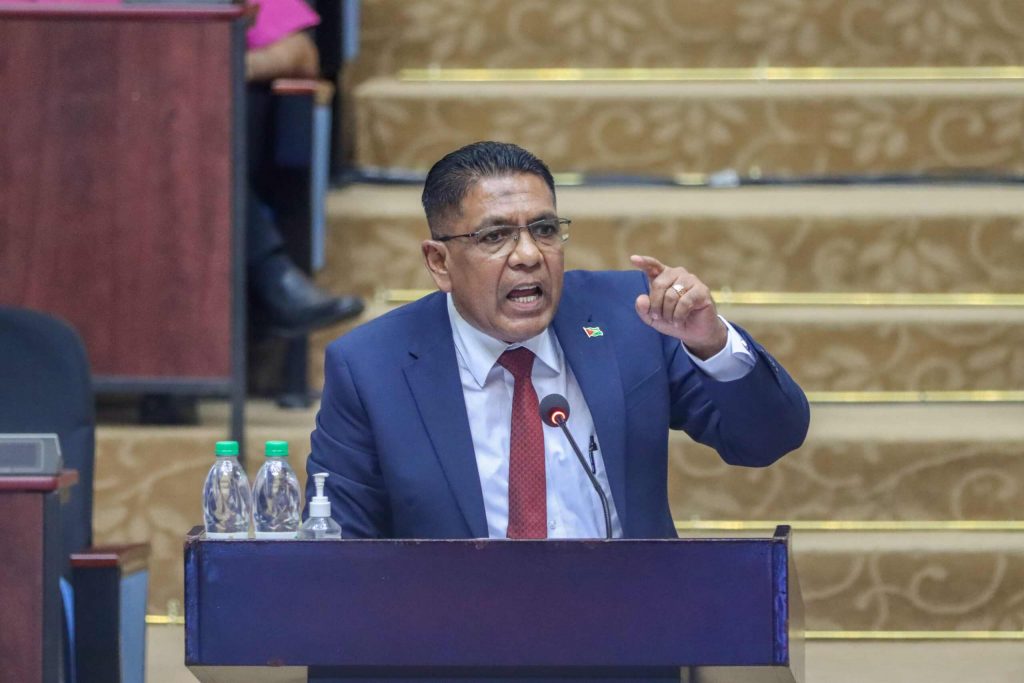Historically, agriculture (sugar cane and rice continuously for over 150 years and forestry, fisheries and livestock in recent decades) served as the major foreign exchange earner as well as the main contributor to GDP for and employment in Guyana. Bauxite, once a major contributor to the economy, lost its significance from the 1980s. Gold and other minerals became significant towards GDP and foreign currency in the 1990s and onwards. Over the last three years, oil and mining have been the major foreign currency earner and the largest contributor to GDP. Agriculture still contributes some 20% of non-oil GDP, and after being on the downside during the coalition tenure, is up again. Farmers I spoke with attribute it in part to the foresight of the government, resources pumped into the sector, and hard work of the Minister of Agriculture Zulfikar Mustapha from August 2020. Agriculture is being transformed under his tenure to produce more. The Minister himself received kudos for his work ethic and for being on the ground to address farmers’ issues. He and his team and the government in general ought to be commended for the strenuous effort to produce more to stabilize prices.
Agriculture remains very important to the economy. And desiring to avoid the oil curse, and not wanting to place all its national development plans on oil, the government wisely continues to devote significant resources on agriculture over the last two and a half years. The Ministry, under Minister Mr. Zulfi Mustapha, has transformed agriculture restoring its importance. The Ministry has been allocated its largest budget ever in the 2023 budget. The Minister has made a most impressive presentation in the budget debate as well as in defending supply estimates allocated to the Ministry in the 2023 budget. The agricultural sector seems on the mend and is projected for rapid growth hereon barring unexpected natural calamities as happened in mid-2021.
From a historical perspective, the agriculture sector over the last twenty years had steadily declined in terms of contribution to GDP falling from over 50% to single digits. It was worse under the coalition tenure when agriculture was completely neglected between May 2015 and July 2020 as it was under the Burnham and Hoyte years (1965 thru 1992). After a change in administration in August 2020, there was a re-focus on agriculture by the PPP administration. This resulted in an increase in food production with local food prices dropping. But the floods of May/June 2021 decimated the agricultural sector, resulting in scarcity of some local vegetables and rapidly rising food prices. To help farmers recover from their huge losses attributed to the floods, government responded with grants and soft loans and some subsidies in the form of fertilizer and seeds to assist farmers to replant and restock livestock. Large amounts of money were also allocated to Guysuco to rehabilitate the sugar industry. The Ministry oversaw the distribution of the flood relief grants to farmers.
Farmers replanted after the floods of 2021. And by the beginning of 2022, agro recovery was well under way. Produce improved significantly followed by price decline of basic foods (cash crops produce like ground provisions, vegetables, and fruits). However, in the latter half of 2022, there was some setback in harvesting of crops because of heavy rains; several farmers lost their crops which were abandoned in the fields because machineries could not get to the fields. Harvested crops could not make it out of the fields. Government provided some needed assistance. The weather played havoc on cultivation and harvesting. But farmers were undeterred. They have not given up – they re-planted. Bountiful harvest is expected in early 2023. A good harvest would help to relieve consumers of the burden of paying relatively high prices brought about by international forces like high costs of fuel, transportation of goods, and the Ukraine War. Inflation has been hurting everyone across the board. Everyone has been feeling the pain of rising prices of almost all goods and services – particular basic foods like provisions, vegetables, and fruits. Government can’t control market forces. The market determines prices.
Cognizant of high food process, the government through the Agriculture Ministry has been providing encouragement and material support to grow more food to bring down and stabilize food prices of local produce. Zulfikar said he is very confident to see an increase in production of rice and all other (particularly cash) crops. The Ministry itself has been involved in experiments of growing some food with much success. The Minister announced several successful ventures or experiments in crops. He assures these experiments and state production of new crops will continue. The new budget caters for it. And the government also has funds in the budget to boost production in the private sector. The efforts of the Ministry should see an increase in food production. Increased food in the market should translate into declining prices – following the rules of supply and demand. But the Ukraine war and high hydrocarbon prices which impact on all aspects of the economy can result in persistent high prices for produce.
The government lacks the wherewithal to tackle international forces like the war and shipping costs. But it has reduced or removed VAT on a number of basic items, and it has also reduced shipping clearance fees in Guyana for all imports. These measures should pay dividends soon – meaning bring down costs of production that should be passed on to consumers as relief in lower prices at the market.
